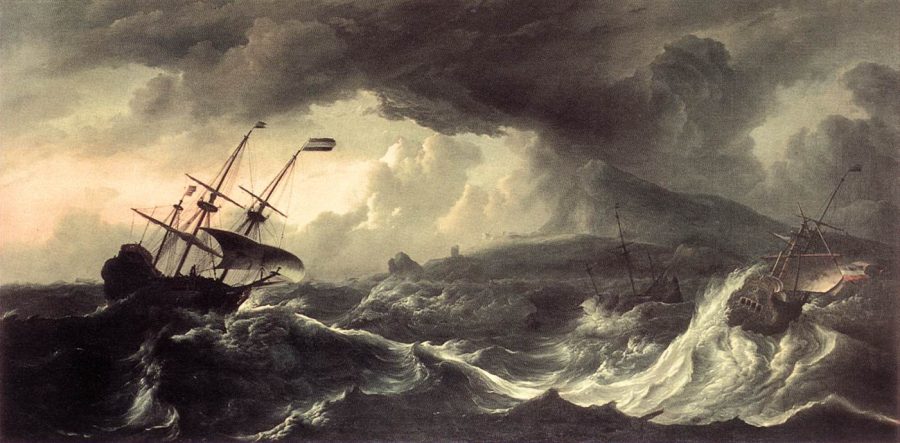Jack London was born in San Francisco in 1876 and died 1916. Between those years he packed in about as much adventure as is possible for one human being. London is famous for his tales of the wild and stormy sea voyages, yet he also lived and breathed those same experiences. In terms of beautiful and descriptive writing, he has no equal.
In London’s “The Sea-Wolf,” a dusty professor is pressured into the crew of a sealing schooner and experiences an entirely new life. London creates a world in which the man who labors is forced to engage with the subjects he formerly thought of only academically. He creates a novel that communicates the terrifying beauty and majesty of a sea adventure, the excitement of a storm. He also illuminates what it means to immerse yourself in a new lifestyle and how one copes with challenges and problems that cannot be solved with previous knowledge.
In the book, the protagonist, professor Humphrey Van Weyden, encounters schooner captain Wolf Larsen, a devout materialist and surprisingly well-versed philosopher for the captain of such a vessel. The high sea is the stage for great philosophical debates between Van Weyden and Larsen. The captain strives endlessly to show Van Weyden the emptiness of life and how selfishness is the only logical outlook. Van Weyden, uncomfortable without his books and office, must contend with this harshness while trying to retain his own romanticism.
These tales are engaging because they reflect London’s own life. He worked on a sealing schooner and no doubt had to contend with the same moral and philosophical challenges that at times were more difficult than the physical rigors of life in the tundra or life at sea.
London communicates the awesome beauty of nature in a way that I have never observed in another writer. He doesn’t just describe the beauty of a sunset or of flowers, things traditionally thought of as beautiful. London spends two pages describing the excitement, the soul-enthralling feeling of standing at the helm of a ship facing death in the shape of a 20-foot wave. London observes and captures the beauty of the moments where you are caught between life and death. This ability makes him immortal: If one can see life, death and the beauty they encompass and preserve those emotions between the pages of a book, then one can truly live forever.
Indeed, London will live forever. His stories of adventure have and will continue to inspire millions of people to live beautifully and to the extreme. If you have yet to read a Jack London novel, I highly recommend doing so.
@TheChrony


